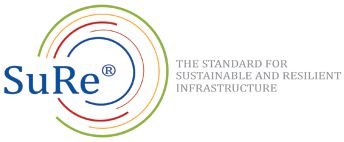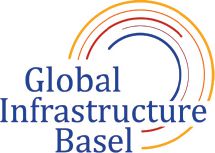Code Update: SuRe: The Standard for Sustainable and Resilient Infrastructure

Infrastructure is a key component of a functioning economy and fundamental to the livelihoods of billions of people throughout the world. Infrastructure supports social and economic systems by enabling access to critical services such as provision of water, health and education; increasing connectivity among cities through roads and other means of transport; and providing housing to the whole population.
Infrastructure is developed to last for decades, and a large part of the infrastructure that needs to be in place by 2050 doesn’t exist today. With the dramatic rise of natural disasters caused by the negative effects of climate change, the importance of sustainable and resilient infrastructure is becoming increasingly clear to cities, financiers and project developers worldwide. Momentum is building in relation to international objectives such as the Sustainable Development Goals (SDGs), and the importance to instill best practices into infrastructure designs has never been greater.
What Is SuRe?
SuRe, the Standard for Sustainable and Resilient Infrastructure, is a third-party-verified, global voluntary standard that was developed through a multi-stakeholder approach. It incorporates inputs from developed and emerging nations to drive the integration of sustainability and resilience aspects into infrastructure development and upgrade by providing guidance and serving as a globally applicable common-language tool for infrastructure project developers, financiers and public-sector institutions. The standard assesses infrastructure throughout the project lifecycle at the design, construction and operational phases. SuRe consists of 14 themes covering 61 criteria across environmental, social and governance (ESG) factors in addition to two general reporting requirements for impact measurement.
SuRe aims to 1) establish a common understanding of sustainable and resilient infrastructure among project developers, financiers, public-sector institutions and end users; 2) improve the quality of projects so they’re built on sustainable and resilient principles; and 3) help investors identify responsible investment opportunities. SuRe has been developed by Global Infrastructure Basel Foundation (GIB) and the French investment bank Natixis with the support of stakeholders globally.
The standard integrates requirements for infrastructure projects to help achieve the objectives of international frameworks including the United Nations Framework Convention on Climate Change (UNFCCC), the Convention on Biological Diversity (CBD), the Sendai Framework for Disaster Risk Reduction, the International Labour Organisation (ILO) Declaration on Fundamental Principles and Rights at Work, and others. SuRe complements the Equator Principles and integrates the International Finance Corporation (IFC) Performance Standards on Environmental and Social Sustainability.
As of Oct. 4, 2018, SuRe became the first infrastructure standard to be an associate member of ISEAL, the global membership association for credible sustainability standards whose mission is to strengthen sustainability standards for the benefit of people and the environment. Now SuRe is on its way toward full ISEAL membership by continuing development of the SuRe system through the standard’s Initial Implementation Phase until the end of 2019. During this phase and beyond, SuRe shall be applied to infrastructure projects to assess their compliance with the standard.


Benefits and Contributions
SuRe shows many benefits, including the following:
• Applicable to all types of infrastructure projects in developed, emerging and developing nations.
• Provides a standardized approach to facilitate the implementation of infrastructure projects.
• Considers sustainability and resilience from both risk-mitigation and benefit-creation perspectives.
• Improves project consistency and ensures project comparability.
• Increases the quality of infrastructure projects and their attractiveness to investors.
• Positive impacts on biodiversity, climate change, pollution and socioeconomic development.
• Contributes to achieving Sustainable Development Goals.
Projects certified under SuRe are required to demonstrate they have thoroughly mitigated all ESG risks and provide significant contribution to sustainability and resilience objectives. For example, every SuRe-certified project must:
• Support the implementation of the Paris Accord by maintaining emissions coherent with Nationally Determined Contributions (NDCs).
• Be resilient to the effects of climate-change scenarios defined by the Intergovernmental Panel on Climate Change (IPCC).
• Engage meaningfully with stakeholders, including vulnerable groups, and implement non-discrimination and gender-sensitive practices specified by the International Labour Organisation (ILO) fundamental conventions as well as Convention on the Elimination of all forms of Discrimination Against Women (CEDAW).
• Maintain high anti-corruption practices in line with the Transparency International principles and the Financial Action Task Force (FATF).
• Respect, protect and promote human rights as stated by the Universal Declaration on Human Rights.
• Avoid causing negative impact on biodiversity, including all endangered species and critically endangered species according to the International Union of Conservation for Nature (IUCN) protected areas category Ia or Ib.
• Meet other requirements specified in the SuRe criteria.
The projects are rated based on performance and management criteria. Depending on the results, the most sustainable and resilient projects can be rated bronze by meeting all the required criteria, silver by exceeding the required criteria or gold by showing exceptional good practice or innovation
About Katharina Schneider-Roos
Katharina Schneider-Roos is CEO of the nonprofit foundation Global Infrastructure Basel (GIB). She co-chairs the Cities Climate Leadership Alliance (CCFLA) Working Group on Project Preparation Facilities, is a member of the CCFLA Steering Board and a member of the ICLEI Resilient Cities Conference Program Committee. In support of the Swiss Government and international experts, she is currently working with a project team to establish SuRe; email: [email protected].


